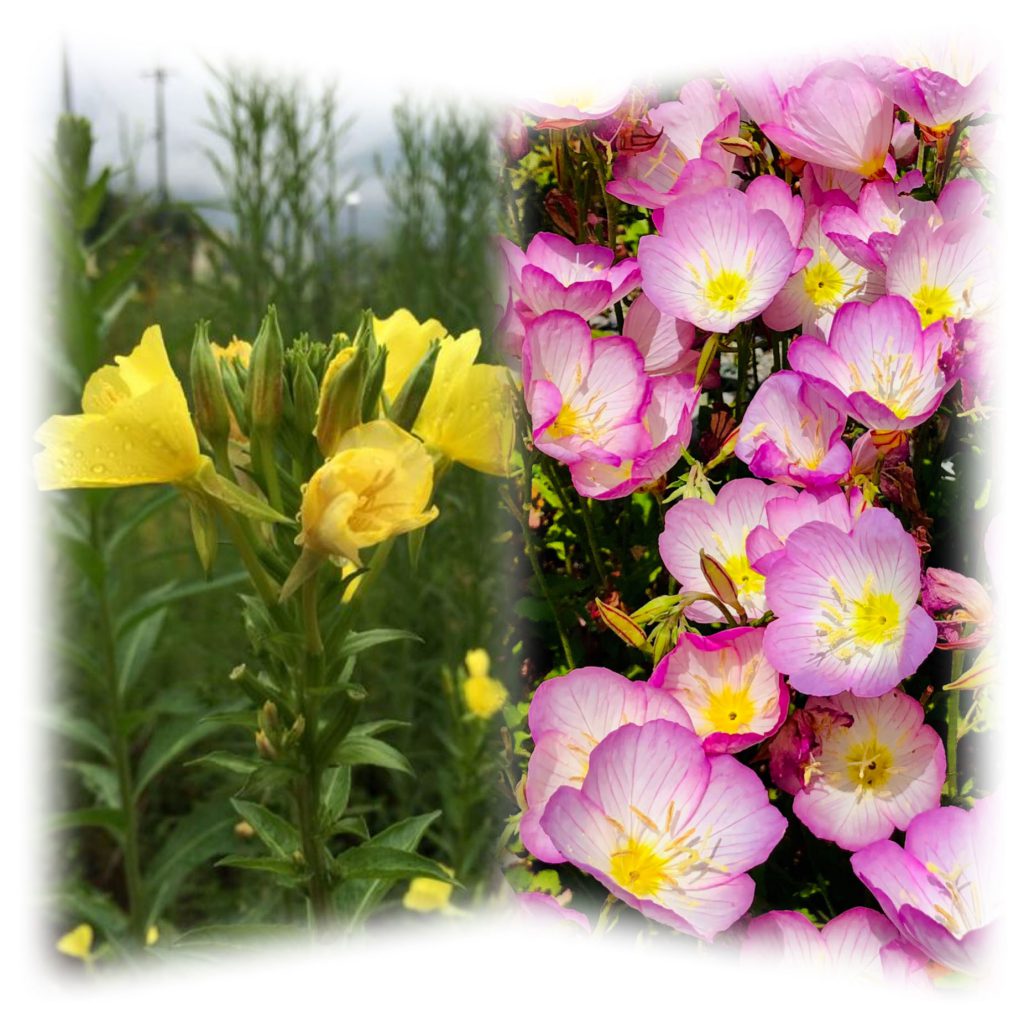
“Yoimachigusa,” written by Yumeji Takehisa, a painter and poet representing Taisho Romanticism, has been rage of times and is still sung. 27-year-old Yumeji traveled to Choshi City, Chiba Prefecture on a summer trip with her divorced family. At that time, Kata Hasegawa (19 years old at the time), who lived next to his inn, visited there, and Yumeji fell in love with her at first sight. A year later, Yumeji, who couldn’t forget her Kata, visited Choshi in hopes of reuniting with Kata, but Kata was already married and he couldn’t meet her again, and Yumeji’s love ended without fruit. And Yumeji’s ephemeral summer love became a poem. “Yoimachigusa” is a coined word of Yumeji, and it seems to be a word that made a parody of Matsuyoigusa. The left of the photo is Me-matsuyoigusa, and the right is Hiru-matsuyoigusa, and they are members of Tsukimiso, such as Matsuyoigusa and Oh-matsuyoigusa.
♭♭♭ 待てど暮らせど来ぬ人を 宵待草のやるせなさ 今宵は月も出ぬそうな ♭♭♭
大正ロマンを代表する画家で詩人の竹久 夢二が作詞した『宵待草』は一世を風靡し、今だに歌い継がれています。27歳の夢ニが離婚した家族を連れて避暑旅行に千葉県銚子市を訪れます。その時、ちょうどそこへ旅館の隣りに住む長谷川カタ(当時19歳)が訪れ、夢ニはたちまち彼女に一目ぼれしてしまいます。その一年後、カタを忘れられない夢ニはカタとの再会を願って銚子を訪れますが、カタはすでに結婚していて再会を果たせず、結局夢二の恋は実ることなく終わりました。そして夢二の儚いひと夏の恋が詩になりました。「宵待草」は夢ニの造語で、待宵草をもじった言葉だと思われます。写真の左がメマツヨイグサで、右はヒルマツヨイグサで、マツヨイグサやオオマツヨイグサなど、すべて月見草の仲間です。
